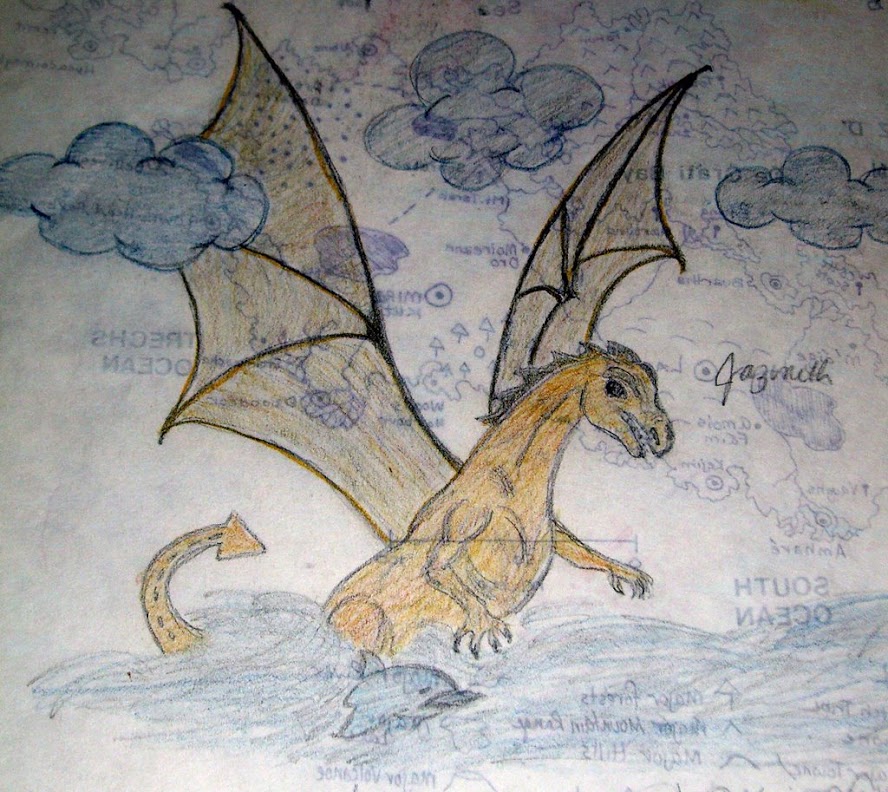I have an obsession with dragons.
 One that began long before Game of Thrones and George R. R. Martin. A friend and I were talking about this obsession a few weeks ago. We both blame it on Anne McCaffrey, but she wasn’t the only author to write of dragons, nor the only author to influence my obsession.
One that began long before Game of Thrones and George R. R. Martin. A friend and I were talking about this obsession a few weeks ago. We both blame it on Anne McCaffrey, but she wasn’t the only author to write of dragons, nor the only author to influence my obsession.
The Eyes of the Dragon by Stephen King (originally published in 1984) doesn’t have dragons in it. Not one bit. But when I was in middle school, I didn’t know that. I saw a book I hadn’t read with the word “dragon” in the title. For me, that was enough. I just knew the book had to be awesome with the word “dragon” in it.
I’d read some Stephen King before this. Mainly Cujo, Carrie
, It
. When I got my hands on a used copy of The Eyes of the Dragon, I thought it had to be another Stephen King writing the book, a different Stephen King. I didn’t know that authors could write different genres (and I was thrilled to learn otherwise once I got older).
Even when I figured out there were no dragons in the story, I still loved this book. It’s just a nice piece of fantasy storytelling.
When I was writing in middle school, I just wrote. No one told me all these “rules” writers are “supposed” to follow. When I hit high school and joined my first professional writing critique circle, suddenly I was inundated with rules like:
- Never use adverbs. Ever.
- Don’t write about dragons. It’s been done too much and it’s too cliché.
- Pick a genre and stick with it. Writers can’t write in multiple genres.
And so on. And for every rule they mentioned, I could think of a dozen or more authors who’d broke those rules. Only, to those in my critique circle, those authors were “famous” authors who could afford to break the rules. Stephen King wrote in multiple genres because he was Stephen King.
But even then, I could think of authors who weren’t famous. Whose first published novels broke the rules. Breaking the rules made their novels as unique and appealing as they were. The authors bucked the system and were rewarded for it.
Rather than worry about rules, they focused on a good story first, something I think got lost in the shuffle the past two decades. At least, lost by some editors. As the industry is changing and independent authors are not frowned upon as “unsuccessful losers” or those who “couldn’t get published,” the rules are changing, too. The focus has shifted again to the good story, rather than trying to write what one thinks will snag an editor. (As Hugh Howey has stated many times, the gate keepers are the readers. As it should be!)
Between The Eyes of the Dragon and Stephen King‘s book On Writing: A Memoir of the Craft, I learned that telling the story is the most important and only rule in writing. Period.

Want to read other Flashback Fridays? Click here to see the list in this series.

